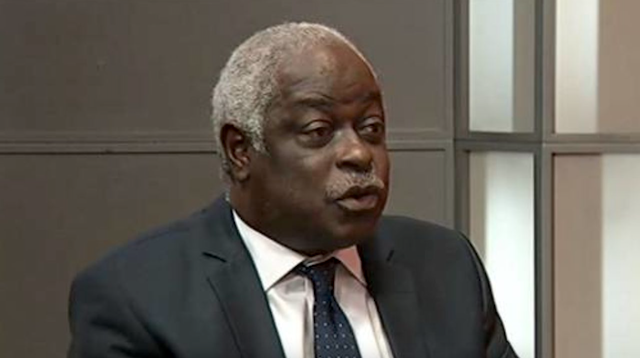“The time is coming, but now is”.
My oldest brother, Bayo, left Nigeria without telling anyone where he was going. He did not tell our aged parents, his wife, or his children. And he did not tell Biodun and me, his brothers.
Moreover, he communicated with no one thereafter, so we did not know his whereabouts. When our parents passed away one after the other, we had no way of reaching him. His safety became a matter of great concern. All we could do was commit him to God in prayer, which was more than enough.
A wasted trip
Some six years later, we got word that he was sighted in the Gambia. I had to attend the funeral of a member of our church in Sierra Leone, so I decided to take the opportunity to go to the Gambia to see if I could find him.
The person who told us about him gave us the address of a street corner shop in Serrekunda, Gambia. It was not difficult to find, and I was directed to a barbershop where I met a Nigerian man.
He told me my brother had been living with him for years. But several months before my arrival, he left Serrekunda for a place called Basse. I thought the Gambia was a small country, but he assured me Basse was nine hours from Serrekunda by road.
I told him that since I had come from Nigeria, I would have no choice but to go and see him there. But the man said that would not be possible. My brother left no forwarding address. “So where would you look?” he asked.
I concluded that my trip to the Gambia was in vain. I checked into a hotel and told the Lord: “It looks like You brought me to the Gambia so that I can spend a quiet time with You.”
Kingdom dynamics
But the next day, the Lord woke me up early in the morning. Out of the blue, He said: “Femi, let me tell you about the kingdom of God.” Then He started another session teaching me about kingdom dynamics.
I was an intellectual who came to believe in God because of a miracle healing from gunshot wounds. As a result, I was afraid that one day my intellect would confound my faith. I did not stop being intellectual because Christ came into my life, and in so many ways my faith had confounded my intellect.
However, I was afraid that one day I would read something or see something that would contradict my intellect and my faith would be shattered. I was afraid, for example, that I would discover intellectually that some parts of the Bible are false or contradictory. How then would I handle it?
One of those things I questioned was Jesus’ statement to His disciples that many of them would not die until they saw the kingdom of God. But, I thought, all His disciples are dead. According to church history, all but one was martyred. And yet, the kingdom of God has still not arrived.
Today, the church is still following the prayer guide of the Lord, which says: “Your kingdom come. Your will be done on earth as it is in heaven.” (Matthew 6:10).
Who was Jesus referring to? Who among His disciples did not taste death until they saw the coming of God’s kingdom? Could Jesus have got it wrong? How could He have got it wrong? Jesus is not merely truthful; He is the truth. Moreover, He deliberately prefaced his statement by saying: “I tell you the truth.” (Luke 9:27).
That morning in the Gambia, the Lord brought up this little question of my fears. He said:
“Femi, you have been wondering what I meant in Luke 9:27. You have been asking who among My disciples did not die until he saw the coming of the kingdom of God. You said all the disciples are dead and the kingdom of God has still not arrived. So, what could I have meant? Let Me answer your question now.”
“Those who were alive after My death and resurrection, and who became born again at, or after, the Pentecost, saw the kingdom of God in their lifetime. Look at what I said to Nicodemus: ‘Unless a man is born again, he cannot see the kingdom of God.’
“Once a man is born again, he can see the kingdom of God. The disciples were born again, so they saw the kingdom of God. What I want to do this morning is to show you the kingdom of God, since you also are born again.”
Miracle of miracles
And so, the Lord said to me: “Femi, let me show you the kingdom of God.”
And just then, the telephone in my hotel room rang.
The Lord said: “Answer the phone.”
When I picked up the phone, the concierge said: “Dr. Aribisala, your brother would like to talk to you.”
I asked incredulously: “My brother? Where is he speaking from?”
The man replied: “He is right here in the lobby.”
I told him: “I am coming right down.”
I put down the phone and could not believe my eyes. What just happened here? I saw it, as clear as daylight. The Lord had supernaturally moved my brother from Basse, nine hours away to come down to Serrekunda to meet me.
Bayo never knew I was coming. As I said, I had not heard from him in over six years. He had simply decided to come down to Serrekunda to see his friends. Little did he know that that decision was part of the Lord’s plan to bring him to Serrekunda to meet me.
When he got to the barbershop, the gentleman I had spoken to the night before quickly informed him that I had come to the Gambia to see him. Then he gave him my hotel address.
That is how God works. That is the kingdom of God on the move; in the quiet. The natural man might call it a coincidence, not knowing that it is God who is at work. God is at work, and he is at work spiritually. His kingdom is spiritual, nevertheless The Most High reigns and rules in the affairs of his children.

